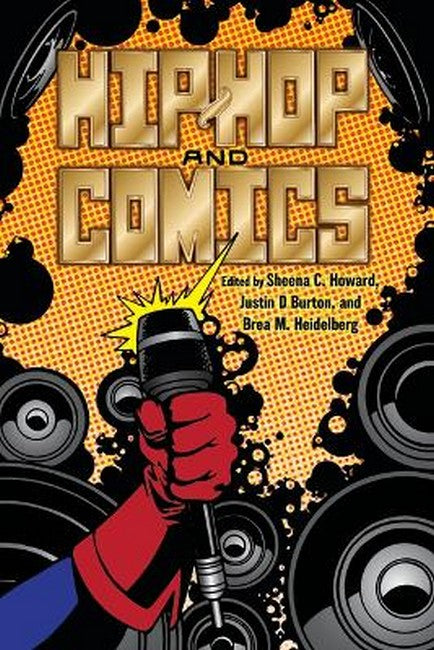Sheena C. Howard is an award-winning author, scholar, and cultural critic whose work explores the intersections of race, representation, and visual storytelling. She is the first Black woman to win an Eisner Award for Black Comics: Politics of Race and Representation and has written for major comic book publishers, including DC and Marvel Comics. Howard's edited book Why Wakanda Matters was a clue on Jeopardy! Her scholarship and creative work examine the cultural and historical impact of comics, particularly in relation to identity and representation. As a writer and editor, she has helped shape narratives that bridge academia and popular culture, solidifying her place as a leading voice in the study of comics. Justin D Burton is professor of music at Rider University, teaching primarily in the music production degree and in the Gender & Sexuality Studies Program. Burton's research revolves around matters of gender, race, and class in hip-hop, dance, and pop music, and their book Posthuman Rap engages the ways rappers use transgressive tropes to liberatory ends. Burton is coeditor of The Oxford Handbook of Hip Hop Music and has also published in venues that include Journal of Popular Music Studies, Journal of Popular Culture, Journal of the Society for American Music, Shima, Journal of Interdisciplinary Voice Studies, and Sounding Out! Burton has served on the editorial board of the Journal of the Society for American Music and is currently coeditor of the media reviews section of the Global Hip Hop Studies journal. Brea M. Heidelberg is associate professor in the Arts & Entertainment Enterprise Department at Drexel University. She is also founder and principal of ISO Arts Consulting, a firm focusing on equity-centered coaching, executive searches, human resources solutions, organizational assessments, and workshops for arts and cultural organizations. Heidelberg's primary research focuses on industrial psychology in arts and creative environments and organizations. Her forthcoming book Human Resources in the Arts focuses on how to create and maintain cultural organizations that are humane and equitable. She is also interested in how class, gender, and race are presented in popular culture in ways that reflect and reject societal norms and harms. Her work includes a critique of Hamilton's color-blind casting in Global Hip Hop Studies and a forthcoming chapter (coauthored with Justin D Burton) in Hip-Hop and American Literature on Black women overwriting phallocentric songs with lyrics centering their desires.

